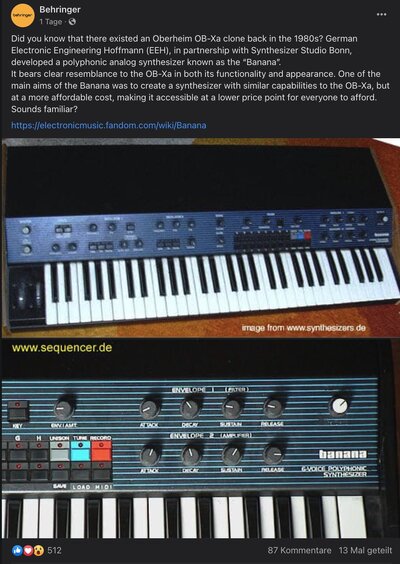2. Eine Kopie der schriftlichen Urteilsverkündung aus April 1999 in UK nebst der üblichen Forums-Intepretation:
Behringer *were* copying. The UK Court judgement
Sehr interessant, danke! Auch (teilweise) die Kommentare, so zb.:
"One example of the lack of reciprocity was that the state of the US of A
copyright legislation was "korean style", a copyright did not exist if
it was not registred, which means that anything foreign that was not
registred in the US of A could be legally copyrighted. [...]
Reciprocity is the normal state of affairs, so if one country does not
protect the copyrights of citizens from other countries, then those
other countries refuse the rouge state any legal protection, and that
was the state of affairs until the US of A signed the Berne convention.
In this context the US of A behaved like a rogue state for very long,
and the copyright culture still comes across as being that "if it not
registred, then it is public domain. [...]
The court ruling was: Behringer stole, but are excempted from judgement
due to the state of the law at the time of the crime. The state of the
law was, explained in very popular terms: the US laws allow what we see
as copyright theft, so we do not protect them from copyright theft.
Behringer were specifically not aquitted, they were found to be outside
the reach of the law because the deed was outside the laws jurisdiction.
So if you want to say that they possibly stole based on an asumption
that they would be within the law, well - it actually may well be the
case [...]
In interessanter Aspekt, finde ich.



